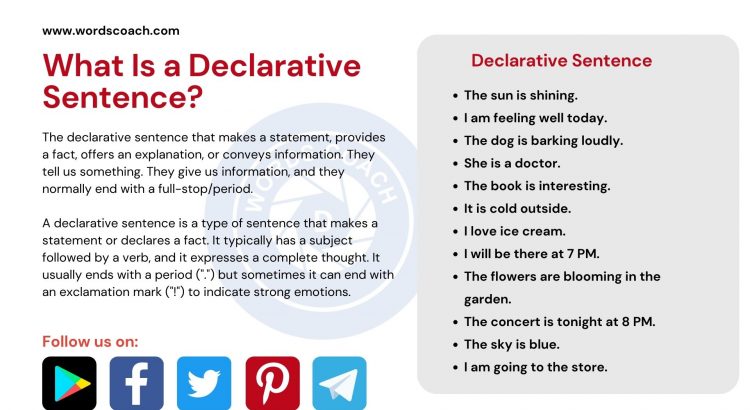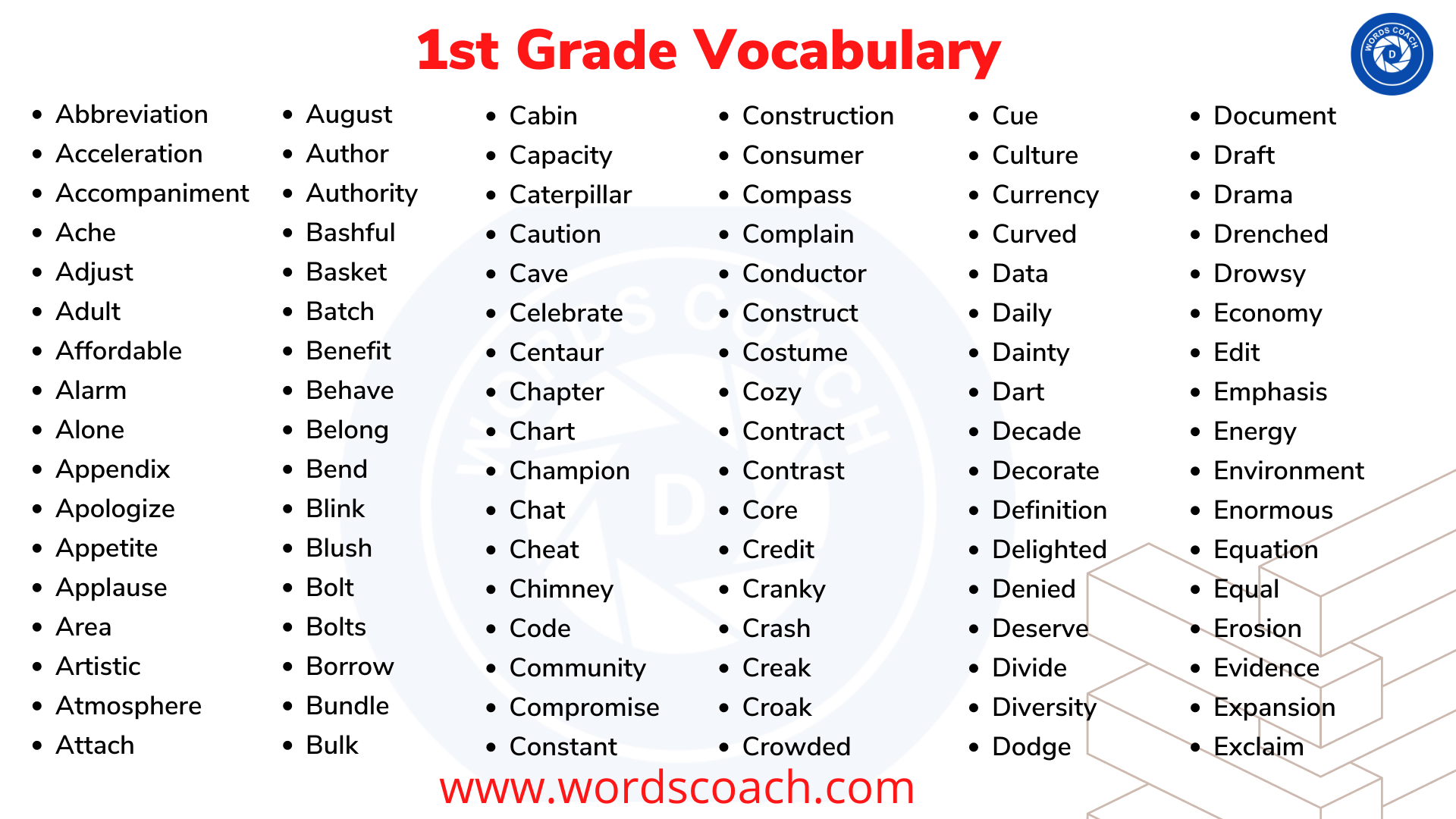Declarative Sentences
The declarative sentence that makes a statement, provides a fact, offers an explanation, or conveys information. They tell us something. They give us information, and they normally end with a full-stop/period.
What Is a Declarative Sentence?
A declarative sentence is a type of sentence that makes a statement or declares a fact. It typically has a subject followed by a verb, and it expresses a complete thought. It usually ends with a period (“.”) but sometimes it can end with an exclamation mark (“!”) to indicate strong emotions.
Examples of declarative sentences include:
- The sky is blue.
- I am going to the store.
- The book is on the table.
- He is a teacher.
- I love chocolate!
Types of Declarative Sentences
There are several types of declarative sentences, which can be classified based on their structure and function.
- Simple declarative sentences: These sentences express a single idea and contain one subject and one predicate.
Examples include “I am happy,” “The cat is sleeping,” and “It is raining.” - Compound declarative sentences: These sentences contain two or more independent clauses joined by a conjunction. They express multiple related ideas.
Examples: “I went to the store, but it was closed.” “I will go to work, and then I will meet my friends.” - Complex declarative sentences: These sentences contain one independent clause and one or more dependent clauses. The dependent clauses provide additional information about the independent clause.
Examples: “When I woke up, I realized that it was a dream.” “I know that you like to play soccer.” - Compound-complex declarative sentences: These sentences are a combination of compound and complex sentences, which contain multiple independent clauses and one or more dependent clauses.
Examples: “I will go to the store and buy groceries, while my friend will pick up kids from school.” “I will watch TV after I finish my homework, if I am not too tired.” - Imperative declarative sentences: These sentences give commands or make requests, but they are still declarative in nature. These are formed by using imperative mood of verb.
Examples: “Please close the door.” “Turn off the lights when you leave.”
These are the main types of declarative sentences, but there are also variations and subcategories within these types.
Uses of Declarative Sentences
Declarative sentences are used to convey information or make statements about something. They are the most common type of sentence and are used in a variety of contexts, including:
- Giving information: Declarative sentences are used to share facts, figures, and other information. They can be used in news articles, textbooks, and other forms of written or spoken communication to present information.
- Making statements: Declarative sentences are used to express opinions, beliefs, or other statements about something. They can be used in conversations, debates, and other forms of discourse to express a point of view.
- Giving instructions: Declarative sentences can also be used to give commands, directions, or other types of instructions. They are often used in recipes, manuals, and other forms of written or spoken instruction.
- Making requests: Declarative sentences are also used to make requests, ask questions, and express needs. In this case, they are formed by using imperative mood of verb
- Persuading: Declarative sentences can be used to persuade or convince others of a certain point of view. They are often used in advertising, political speeches, and other forms of persuasion.
- Describing: Declarative sentences are also used to describe things, people, and events. They can be used in creative writing, poetry, and other forms of descriptive writing to create vivid, detailed imagery.
Declarative sentences are versatile and can be used in many different ways. They are an essential component of effective communication and are used in a wide range of contexts.
Examples of Declarative Sentences
Here are a few examples of declarative sentences:
- The sun is shining.
- I am feeling well today.
- The dog is barking loudly.
- She is a doctor.
- The book is interesting.
- It is cold outside.
- I love ice cream.
- I will be there at 7 PM.
- The flowers are blooming in the garden.
- The concert is tonight at 8 PM.
As you can see, declarative sentences can express a wide range of ideas, from simple statements of fact to complex ideas and opinions. They are used to convey information, make statements, and describe things, people, and events.






